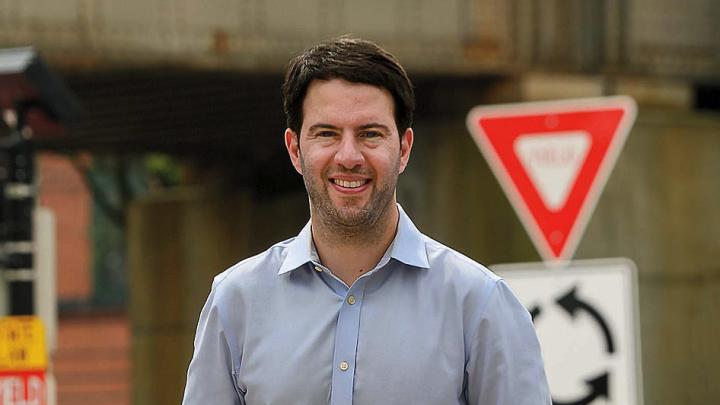Nicholas Stephanopoulos was a second-year law student at Yale when the Supreme Court ruled—unsatisfactorily, he believed—on the 2004 Pennsylvania gerrymandering case Vieth v. Jubelirer. Splitting 5-4, the justices upheld the state’s partisan Congressional districts and left unresolved the question of whether the courts should have a say in political gerrymandering. For Stephanopoulos, now Kirkland & Ellis professor of law, the case was a game-changer: election law, democratic theory, and the American electoral system came to dominate his career. Gerrymandering is a particular fixation—he’s best known for developing a quantitative measure of partisan bias in districting that became the basis of lawsuits in North Carolina and Wisconsin, which he helped litigate all the way to the Supreme Court (where both ultimately lost). Stephanopoulos ’01, who studied government at the College, is writing a book about the concept of alignment: how closely government policies and actions reflect voters’ wishes. “Alignment is at the heart of what it means to be a real democracy,” he says, and the “most powerful tools” working against it include voter suppression (Stephanopoulos has sharply criticized recent Supreme Court decisions undermining the Voting Rights Act), money in politics, and, of course, gerrymandering. These are obsessions he shares with his wife, Ruth Greenwood, visiting assistant clinical professor and director of Harvard’s new Election Law Clinic. The cake at their 2015 wedding featured a blue-icing version of Illinois’s earmuff-shaped 4th Congressional district, with boundaries drawn to give Latino voters greater representation (not all “‘funny-looking’ districts are bad,” he notes). For election-law scholars like them, the past year has been riveting—and worrying: following the 2020 census, every state is set to redraw its district maps next year, “and I think we’re about to see some of the most aggressive gerrymanders in American history.”
Nicholas Stephanopoulos

Nicholas StephanopoulosPhotograph by Jim Harrison
You might also like
Talking About Tipping Points
Developing response capability for a climate emergency
Academia’s Absence from Homelessness
“The lack of dedicated research funding in this area is a major, major problem.”
The Enterprise Research Campus, Part Two
Tishman Speyer signals readiness to pursue approval for second phase of commercial development.
Most popular
More to explore
What is the Best Breakfast and Lunch in Harvard Square?
The cafés and restaurants of Harvard Square sure to impress for breakfast and lunch.
How Homelessness is a Public Health Crisis
Homelessness has surged in the United States, with devastating effects on the public health system.
Portfolio Diet May Reduce Long-Term Risk of Heart Disease and Stroke, Harvard Researchers Find
A little-known diet improves cardiovascular health through several distinct mechanisms.







